Oasis Of Beauty In An Eclectic City
There is no total beauty just as there is no general ugliness... Especially in the case of cities, in whose existence there has been so much intervention and influence.
Beauty and ugliness not only mix, they live together, but they are very subjective notions. How often do we realize what we like, and what others dislike? In all my travels I have encountered both exceptional places and the unpleasant side, sometimes hidden but which comes to light at some point.
The same happens in the city where I live, Bucharest. A city with everything, as I think are all major cities in this world. Because this is the explanation for these mixtures of exceptional things and deplorable things. The existence and intervention of people! People who are good or bad, educated or uneducated, educated people with bad intentions or uneducated but honest people, and so on, there can be many such combinations.
Bucharest is the capital of Romania, a country in Eastern Europe, a country that experienced the communism imposed by the USSR for half of the twentieth century, as did many other capitals of countries in this part of Europe. Unlike some very beautiful cities in this area, such as Prague and Budapest, where the buildings of the past have been preserved and cared for, in Bucharest, an uncultured dictator with an admiration for Asian communism brutally intervened in the city's layout, demolishing massive amounts of beautiful buildings to build entire neighborhoods inspired by North Korean architecture.
Fortunately, he didn't have time to mess it all up! In 1989 he was removed from power, received his well-deserved lead in front of the firing squad and our country returned among the democratic countries of the world.
Under these conditions the city where I live and which I love and detest at the same time has become an eclectic city, mixing different architectural styles, characteristic of the historical stages through which it has passed.
This mix gives the charm but also the ugliness of this city, which has become more and more sought after by foreign tourists precisely because they can see in reality what a tormented city looks like but which is now trying to find an identity.
My walks through the city have this main purpose, namely to discover and admire the remnants of the city's beautiful past that were formerly called Little Paris! I did a short route, in the city center, starting from a small and charming park, called Ioanid Park.
Ioanid Park
I live on the outskirts of the city and although it only takes me half an hour to get downtown, many areas, i.e. streets and small neighborhoods are unfamiliar to me, because they were not in the directions I normally travel. I heard many times in friends' discussions the name of this park but I could not locate it and for this reason, I started a reconnaissance walk, starting right from the park.
Arriving in front of the park I understood why I didn't know where it was located. The park is surrounded by villas, this small neighborhood was inhabited by wealthy families and these houses were built in the early twentieth century. The entrance to the park is right in front, between the two buildings. I passed by there dozens of times because very close there is a theatre, the Bulandra Theatre as well as the French Institute. Places I used to go to often, especially in my youth, but I never noticed the park behind those villas.
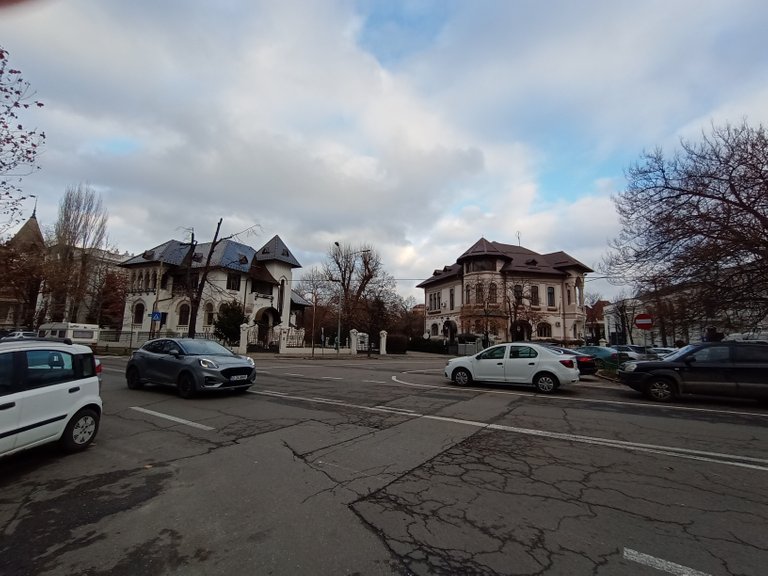
I was accompanied by my wife and a friend, as a guide, because they knew the area better than me.
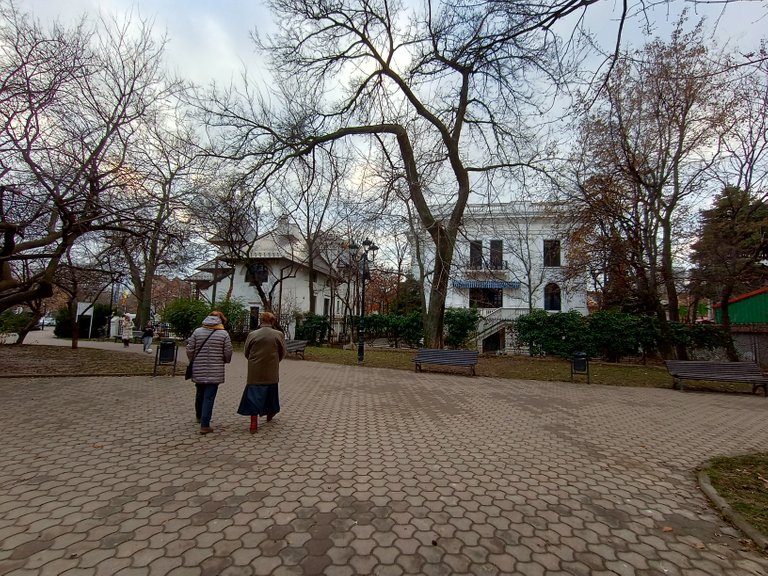
The park is very small, it has only 10,000 square meters and is called Ioanid because the land belonged to a famous bookseller in Bucharest in the 1860s.
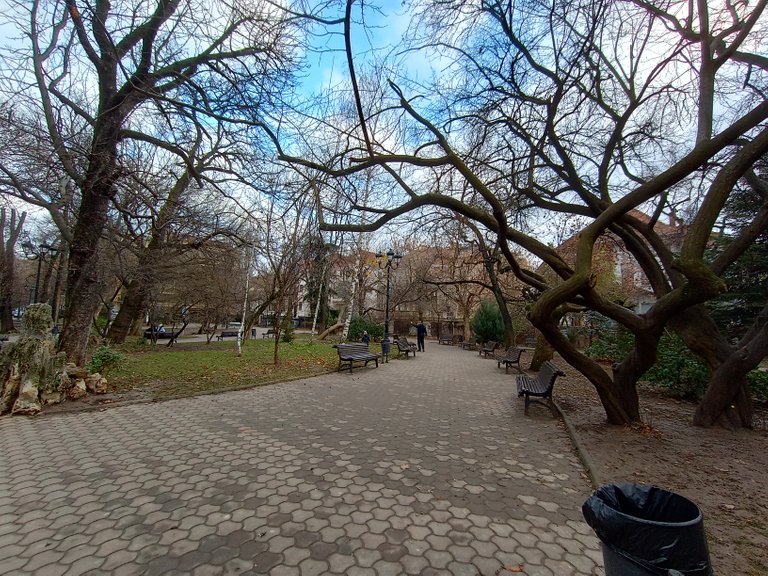
The present appearance of the park originated between 1909 and 1910 when the Bucharest City Hall started a series of urban planning works in the area known as "Ioanid's subdivision". Thus, a neighborhood of villas was built around the present park, each house having a direct view of the park.
Source
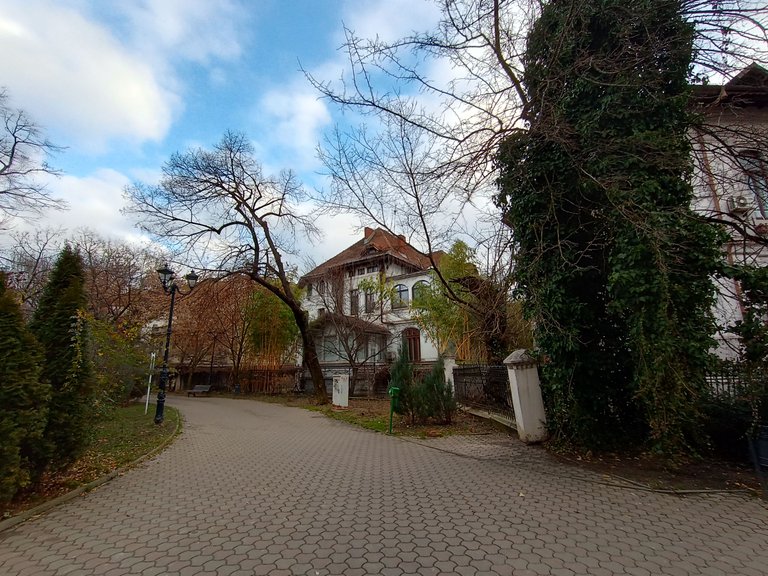
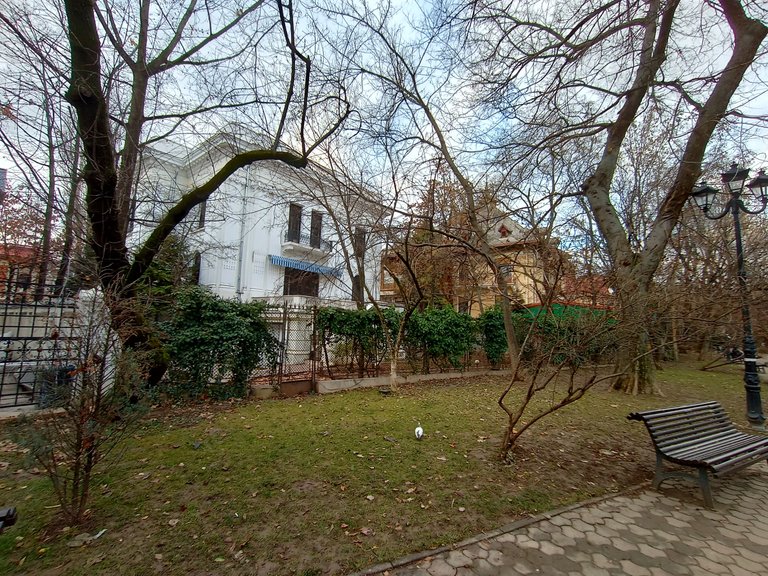
Like everything else being built at the time, the park was copied after the parks of the West, more specifically Paris, after the Parc Monceau. I don't know what this park in Paris is like, but I think it was bigger. Bucharest was nicknamed Little Paris because during its peak of development (19th-20th centuries) it copied the Parisian model, but obviously, everything was built on a smaller scale. If it had been on a larger scale, then it would have been called Grand Paris...haha, of course, impossible to happen.
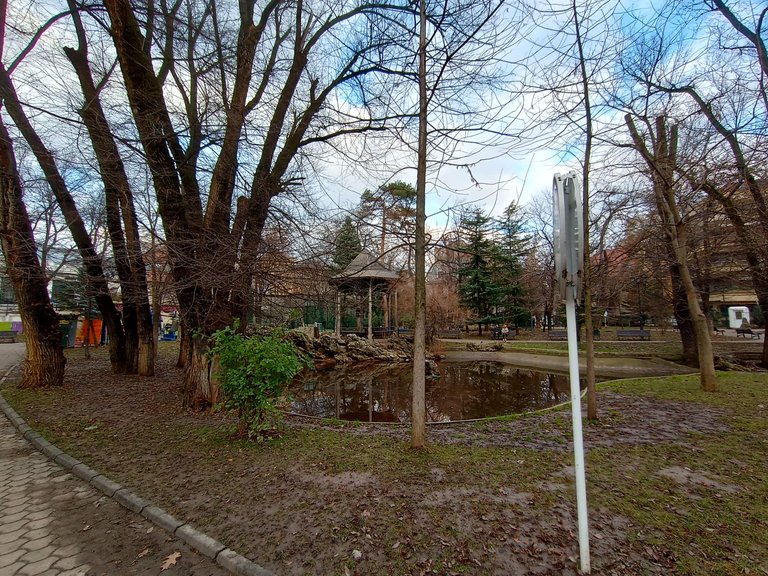
To my surprise, I found the statue of Stefan Luchian, one of the greatest Romanian painters. I don't know what connection he could have had with this little park, but I know for sure that he didn't live in that rich neighborhood... because he was very poor!
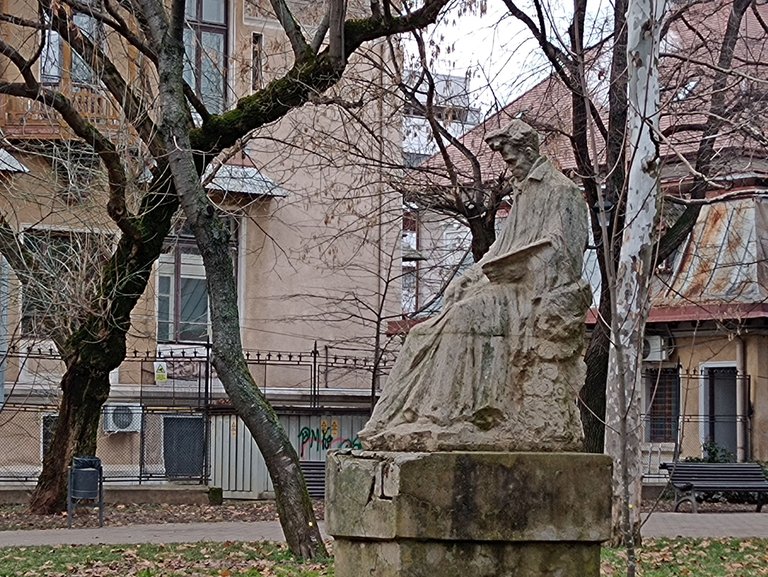
Ștefan Luchian (Romanian pronunciation: [ʃteˈfan lukiˈan], last name also spelled Lukian; 1 February 1868 – 28 June 1916) was a Romanian painter, famous for his landscapes and still life works.
Source
Luchian especially painted flowers and anemones were his favorites. He was poor and sick, and towards the end of his life he could no longer hold the brush in his hand and for this reason, he painted with the brush tied to his hand.
In my opinion, this park was designed in order to attract customers for the villas surrounding it, surprising marketing at the beginning of the 20th century! I think that even now the residents of these villas consider it as a kind of garden of their own. Glad to find out where it was, I left the park for a walk to Lahovari Square, not far away...
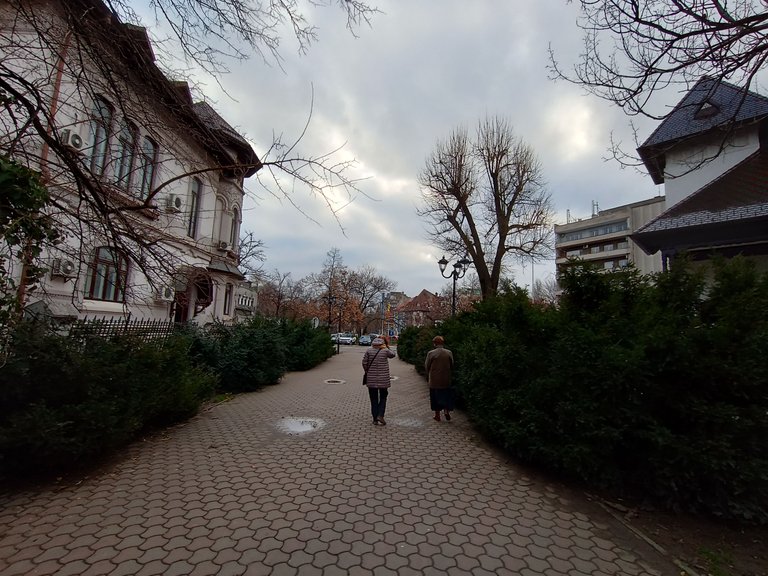
As soon as we left Ioanid Park we came across another park that I knew very well, Gradina Icoanei Park.
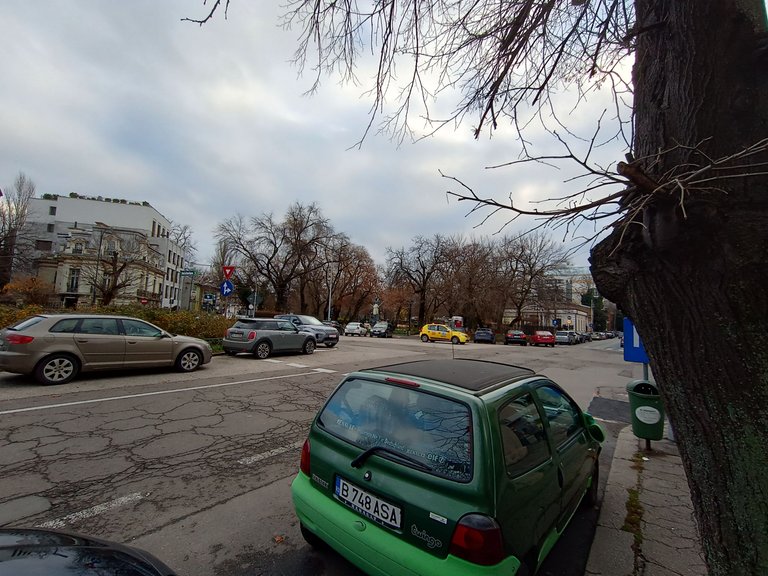
A bigger park and closer to the notion of a park. Of course, here we are in the central core of the city where land is expensive, a place filled with the homes of important city residents...politicians, businessmen, artists, probably even interlopers, haha, people with lots of money and influence.
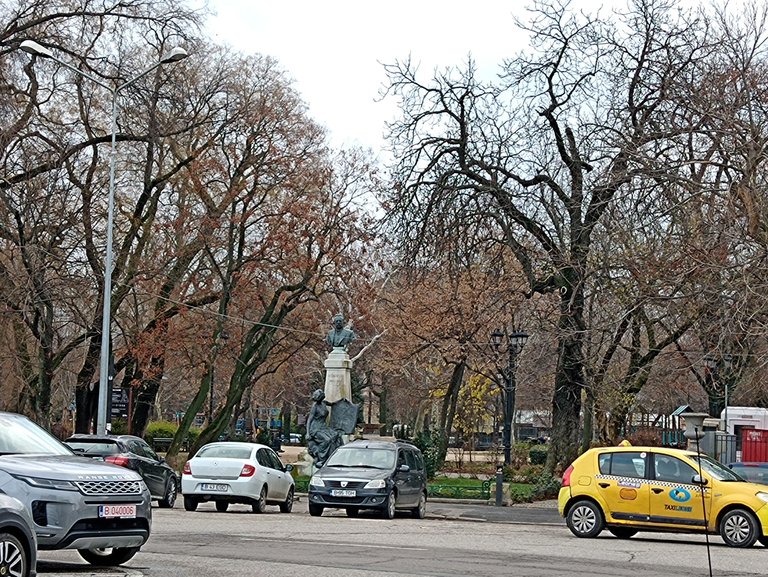
Right next to the park is the earlier mentioned theatre, the Bulandra Theatre, one of the best in Bucharest, for a long time our favorite.

This post was inspired by @tattoodjay's challenge called #Wednesdaywalk which invites you to walk, observe and photograph our walks. I started to write for this community but along the way, I overcame this intention and got attracted by the desire to make a post of acquaintance and invitation to visit Bucharest. That is a post that also fits with #Pinmapple. I would have liked so much to be able to post in several communities simultaneously when the content has elements that would allow it (in this case #wednesdaywalk; #pinmapple and #photographylovers). Of course, it is a matter of choice, but the choice is hard!

Now, because I have decided where to post, and because I want to help any tourists or walkers who would like to repeat my walk, I am thinking of putting up a map as well.
To Lahovari Square
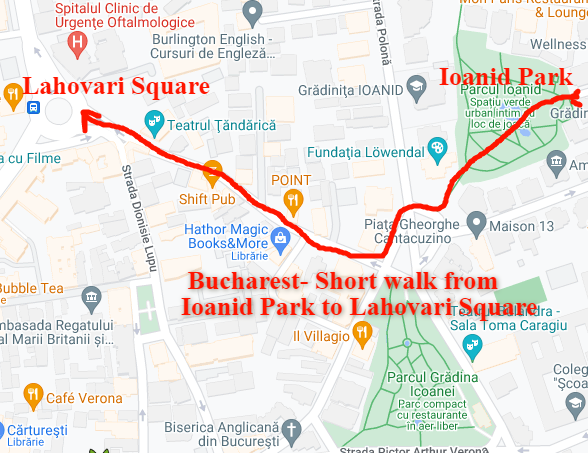
From Gradina Icoanei Park to Lahovari Square the walk was on a short street of only a few hundred meters, General Eremia Grigorescu Street.
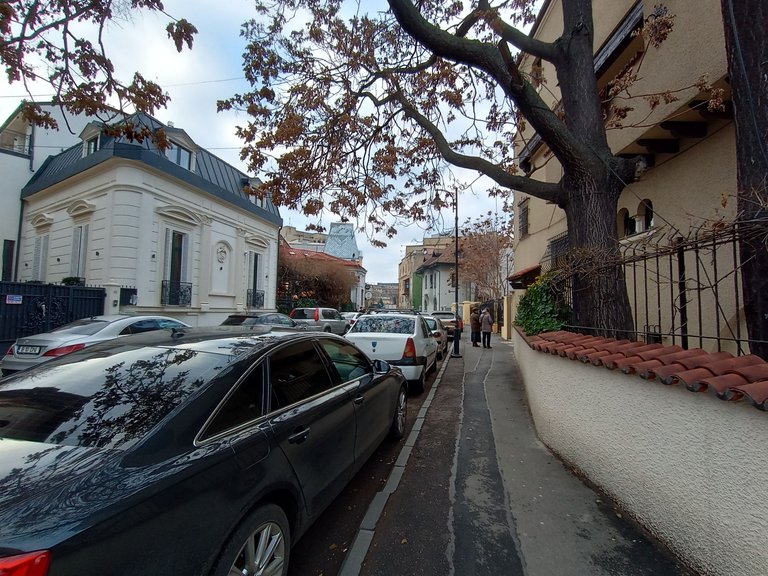
This street, if there were no cars, would look the same as in the period before WW2, the 1930s, Romania's best years before communism. The luck that it remained unchanged, that the houses were not demolished, was also due to the fact that it was a secondary street, but also that all the houses were wanted by the politically and financially powerful, both during the communist period and afterward. These houses were confiscated from their owners at the end of the war and became the property of the Romanian communist state.
After the fall of communism, in 1989, some of these houses were reclaimed and retroceded to the former owners (often to their descendants), others were bought by the former tenants and then sold for very high sums to the new rich of Romania after the anti-communist revolution.
Some houses have been converted into shops...
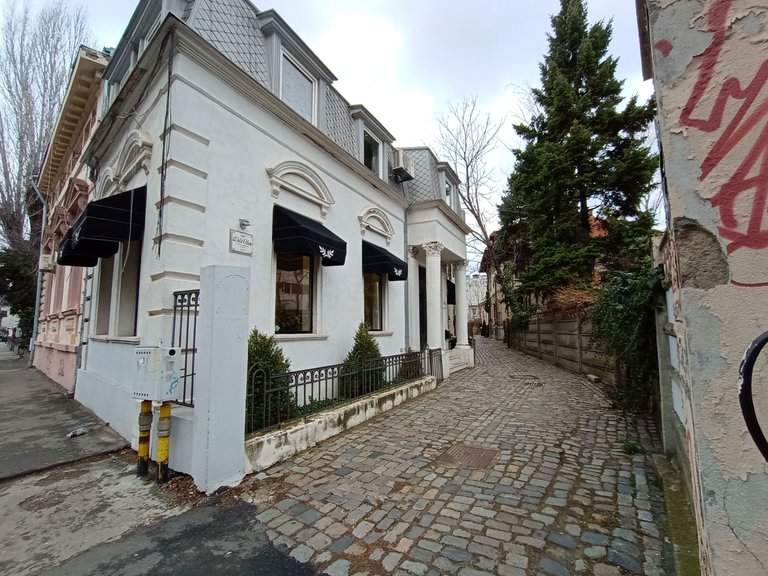
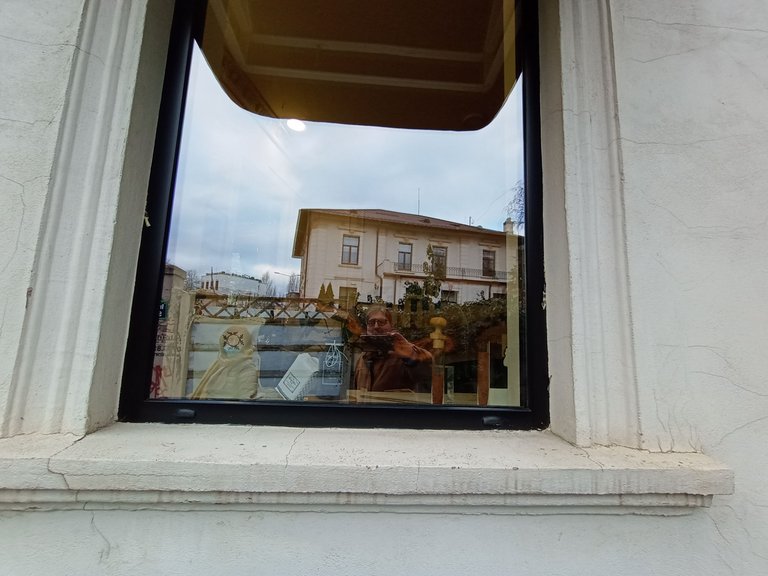
Another became a private theatre "Point" and a restaurant.
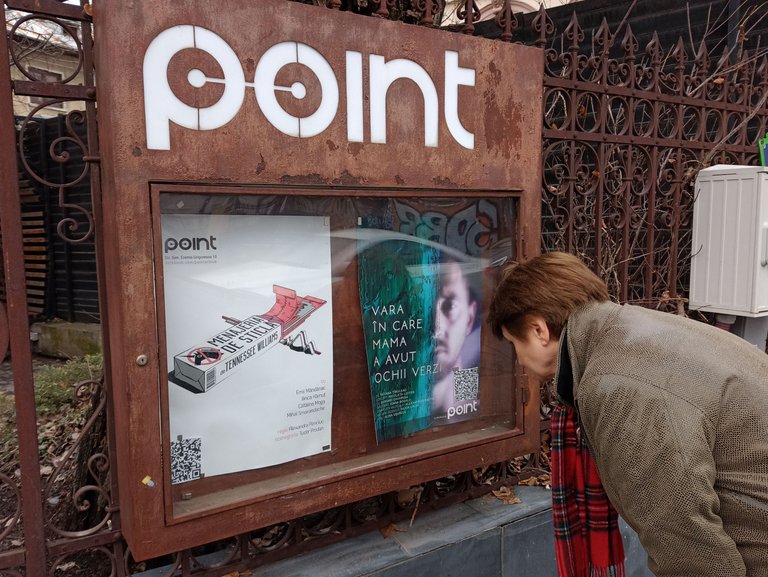
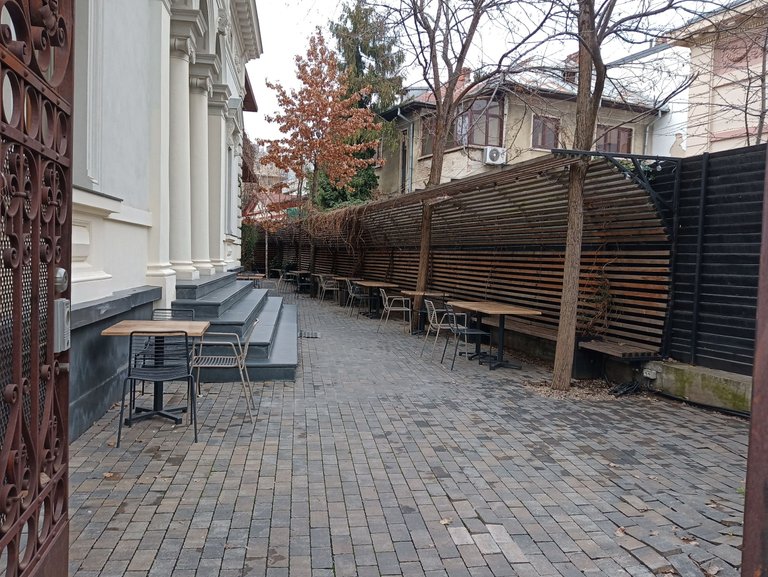
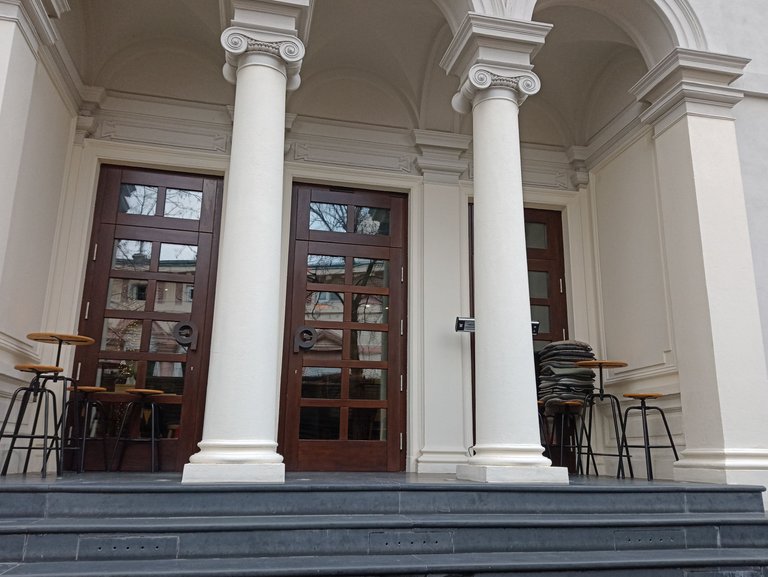
The season was closed but my friends couldn't resist going into the theatre for more information.
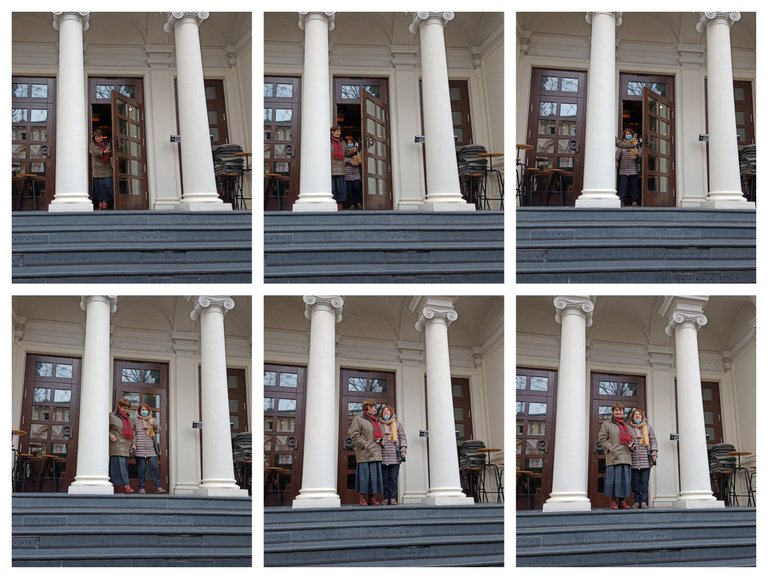
In other houses, cafes have been opened. Coffee has become very sought after lately and this business could not be ignored.
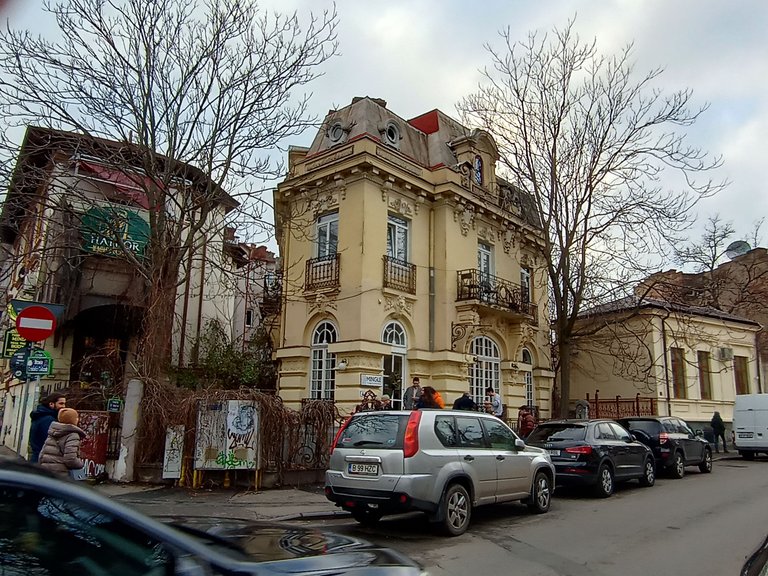
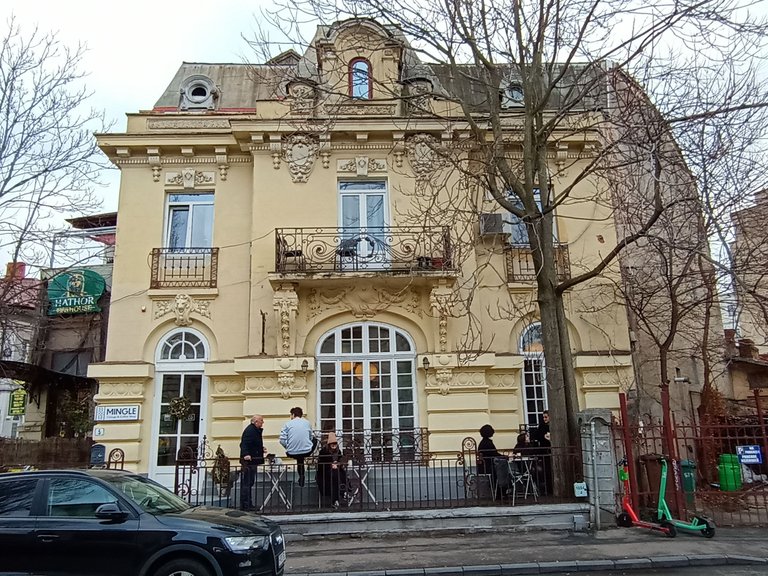
Youth meeting places, bars and cafes with courtyards and greenery. Now it's still cold but summer here is full, especially at night.
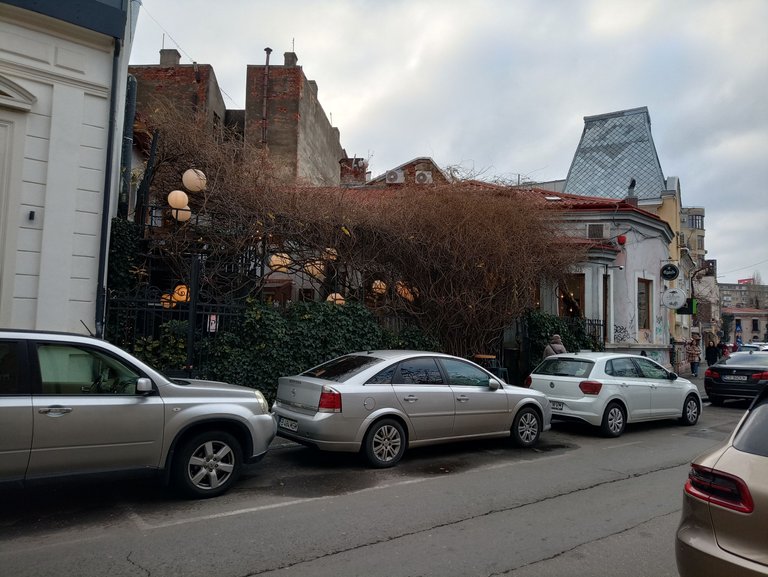
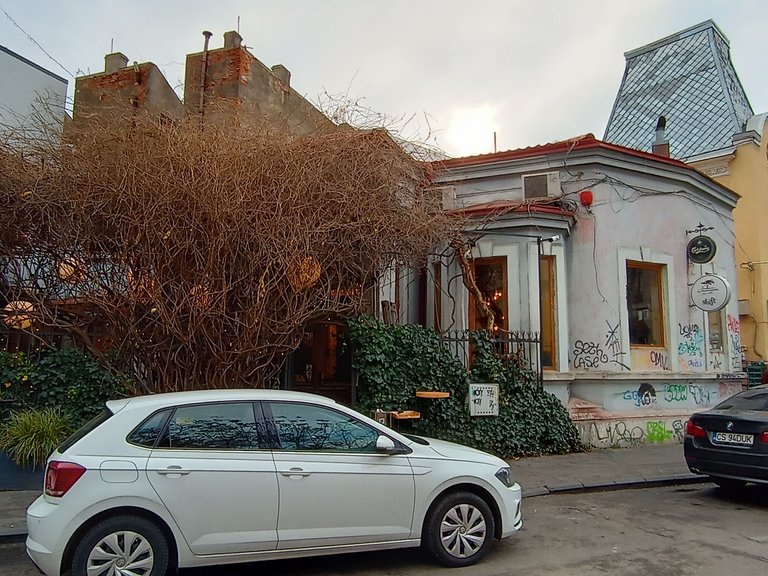
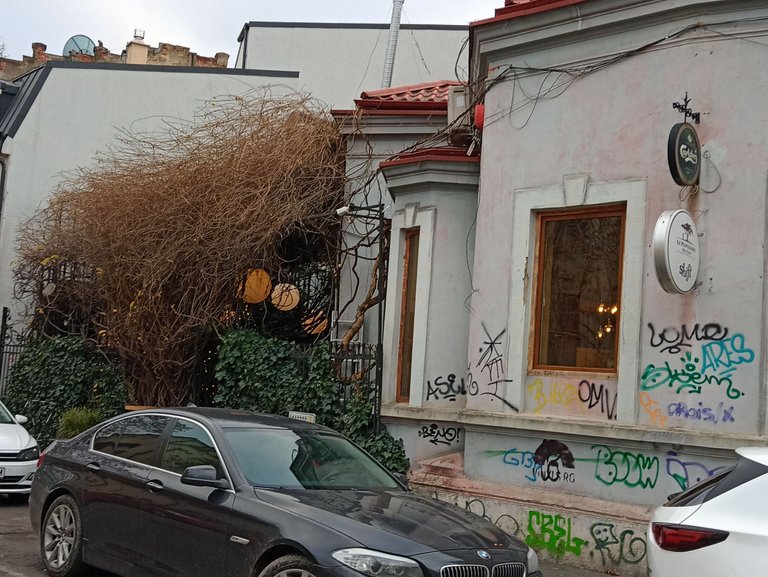
Also here can be seen the condition of some houses. A state of beginning decay. Like this beautiful Mediterranean-style villa. The fact that this house has not yet been refurbished leaves me to make a few assumptions... The house was retroceded to the former owners who have no money or are not interested in renovating it (less likely)...
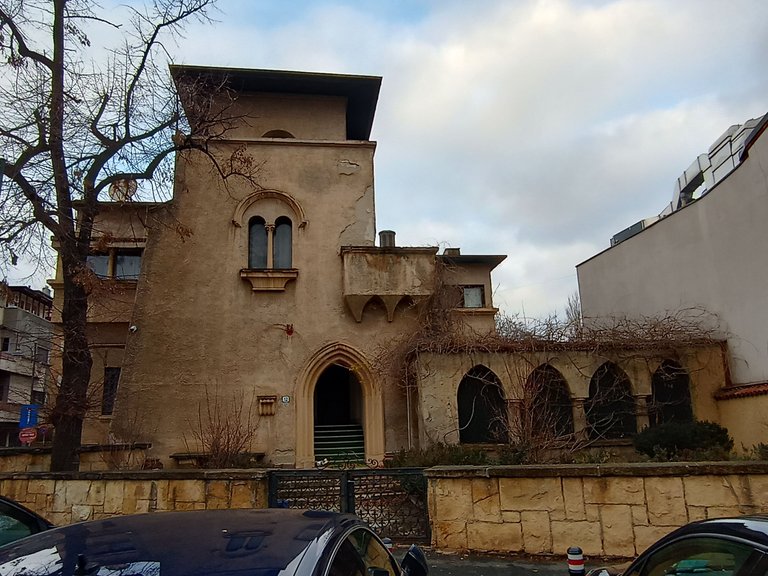
... or someone bought it with the purpose of reselling it, without incurring additional expenses.
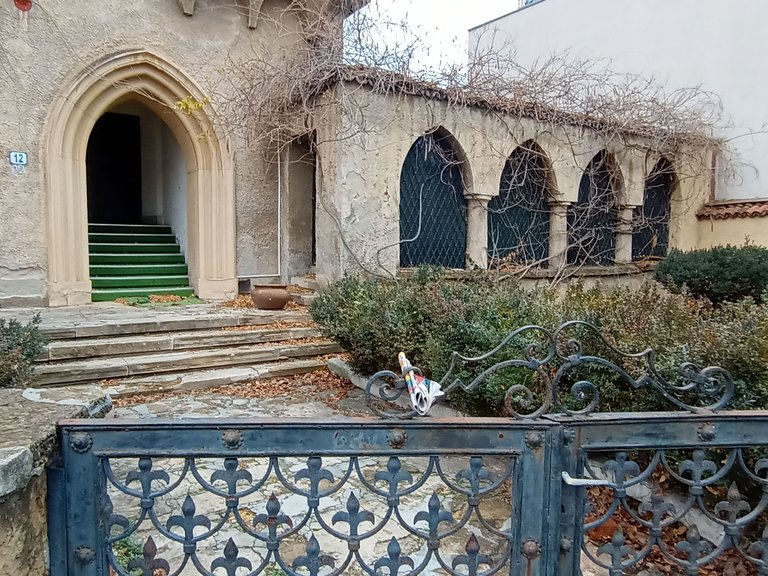
The most plausible variant seems to be that in this house continue to live those who lived in the communist period.
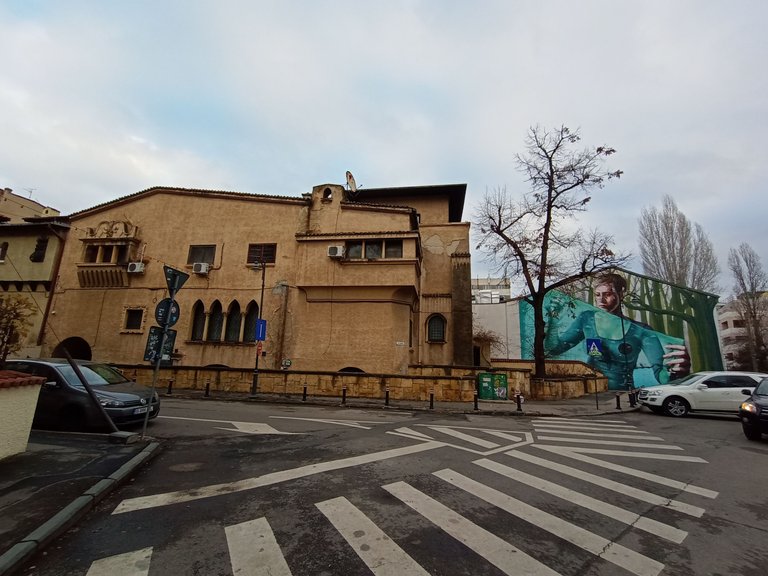
An impressive house. I saw that there is also great graffiti nearby. In Bucharest, there are not many such decorations.
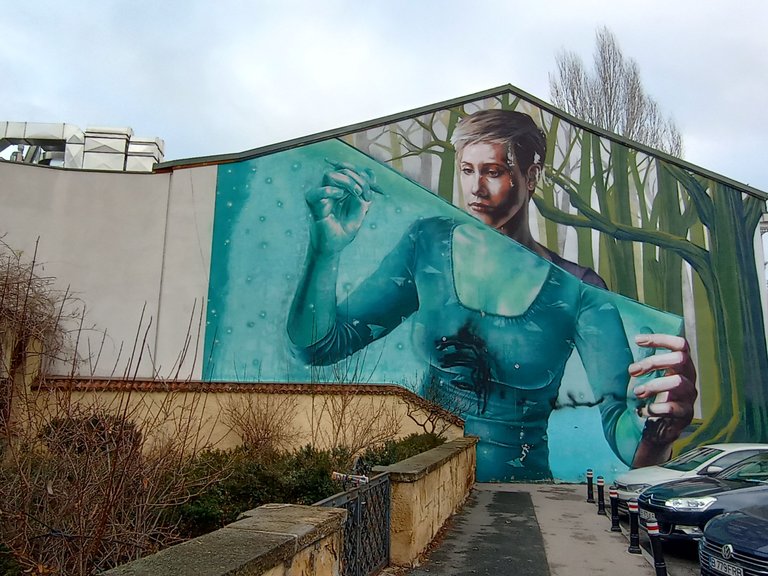
Right across the street from this villa there is an almost similar one that has been renovated.
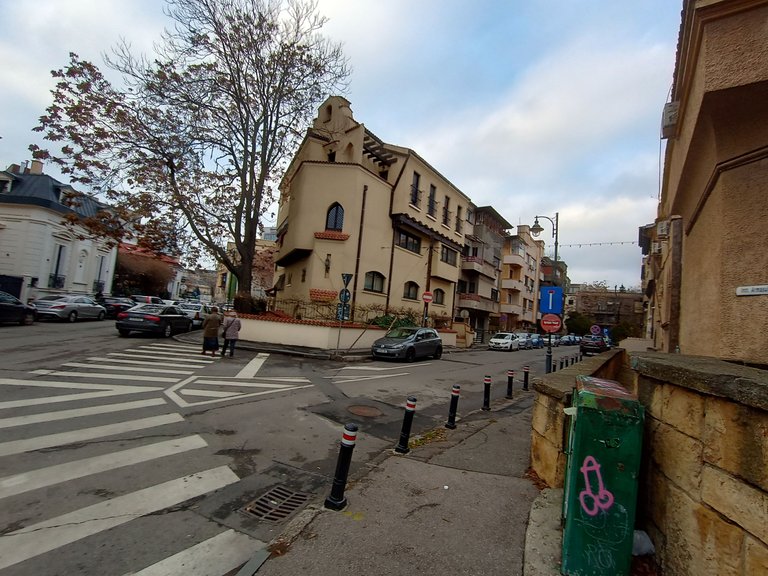
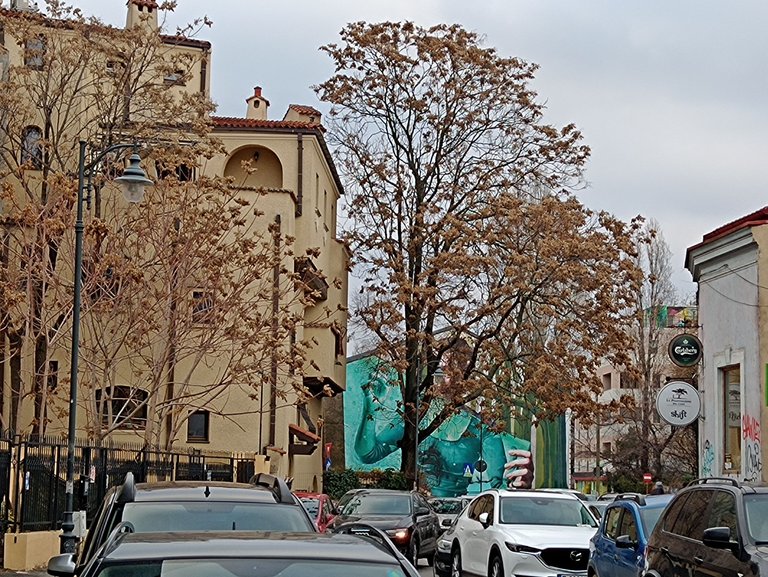
At the end of the street is the most loved children's theatre, Tandarica Theatre.
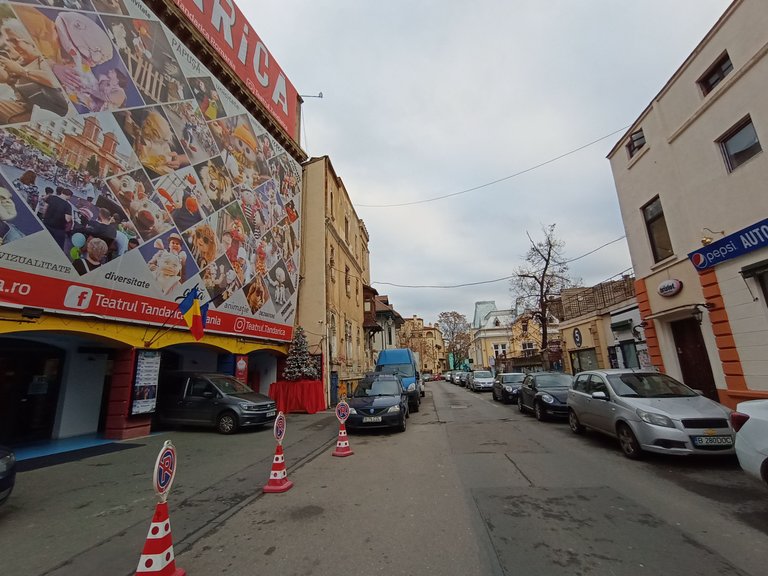
And so, looking at the houses of the past, at what they were and what they have become now, we came to the end of the journey. The terminus is Lahovari Square, just 100 m from Magheru Boulevard, the main boulevard in the city center.
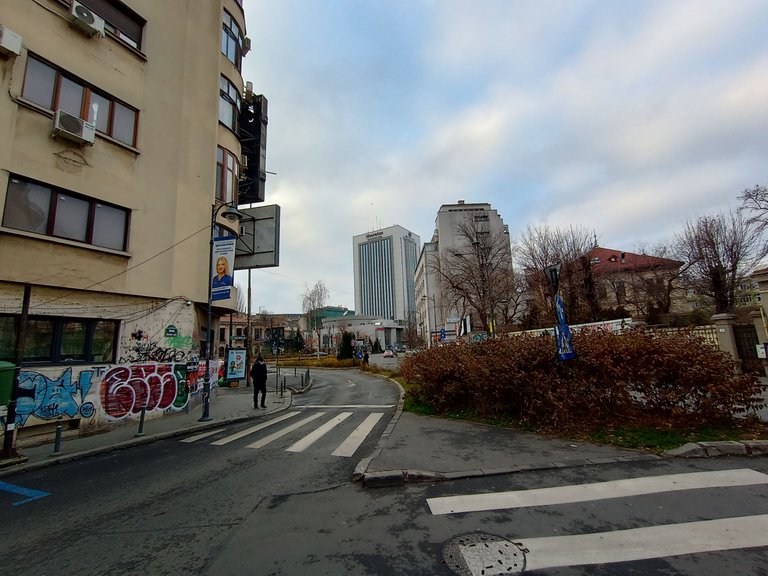
Here we also see new constructions, made after 2000. Sheraton Hotel...
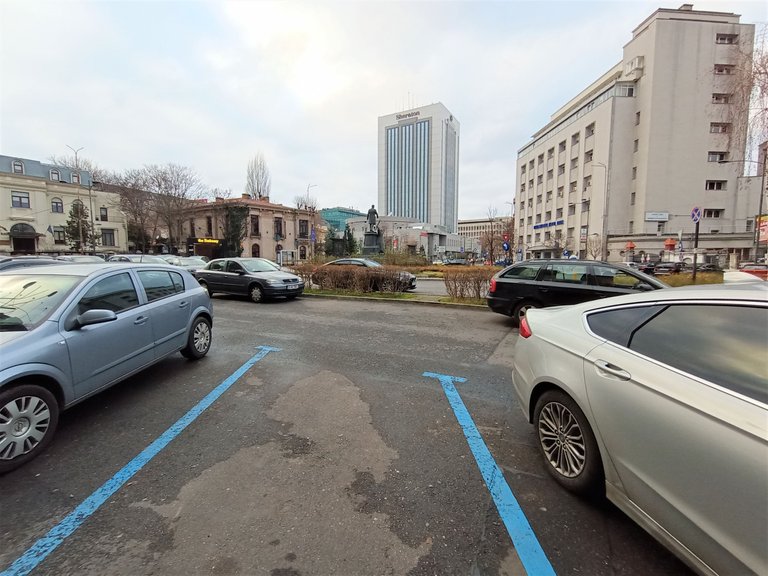
... but also the statue of a 19th-century Romanian politician, Alexandru Lahovari, one of the politicians who contributed to the development and modernization of the country.
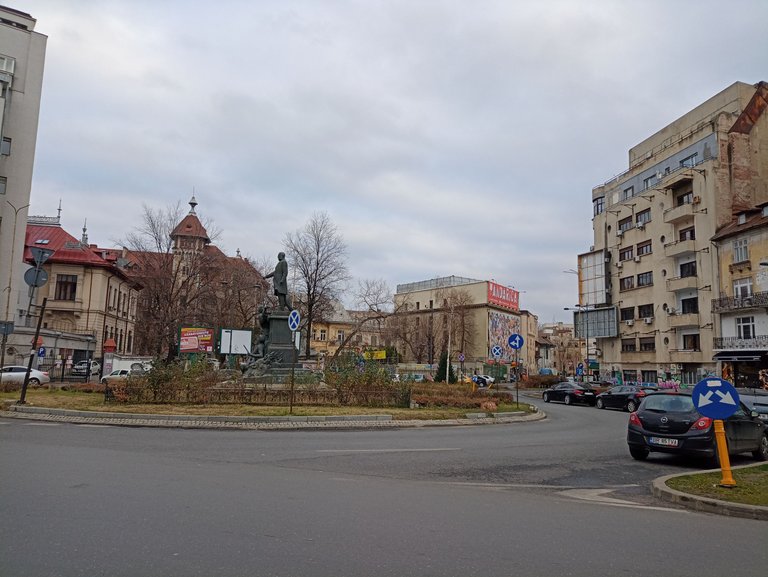
The statue of Alexandru Lahovari in Bucharest was made of bronze by the French sculptor Marius Jean Antonin Mercier/Mercié (1845-1916) and was inaugurated on 17 June 1901 in Lahovari Square in Bucharest.
Source
This was a walk that had two purposes. Searching for a park and describing a street, a small street in downtown Bucharest. Actually, it was not the street itself that was my interest. Buildings that have resisted time, wars, and political changes. The beautiful buildings make the city beautiful. A place worth visiting!

Traveler to the city where I live is what I've been doing for many years. I try to show what is more interesting, more important, and not necessarily what is more beautiful in the city where I live. I don't bypass the ugly places or the sometimes uncivilized behavior that I try to explain through the history of these places but I focus especially on what I think a visitor would like to see when he arrives for the first time in Bucharest. Bucharest, the capital of Romania, a member country of the EU, is located at the crossroads of Central, Eastern, and Southeast Europe. I'm going to use this tag #mycity and then put these places on the Pinmapple map for those who want to discover them more easily!

If you've read this far and aren't in the HIVE already, may I ask you a few questions? Do you want to earn for writing? Do you have passions or skills that you want to show others? Do you want to earn crypto like we have been doing for over six years? Referral link for a FREE account HERE


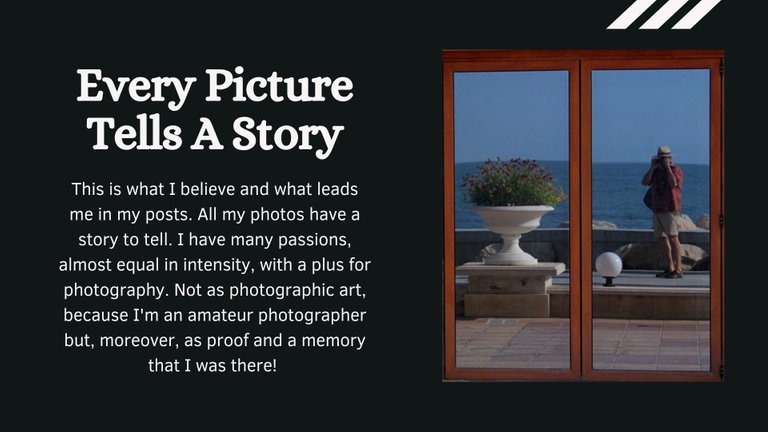
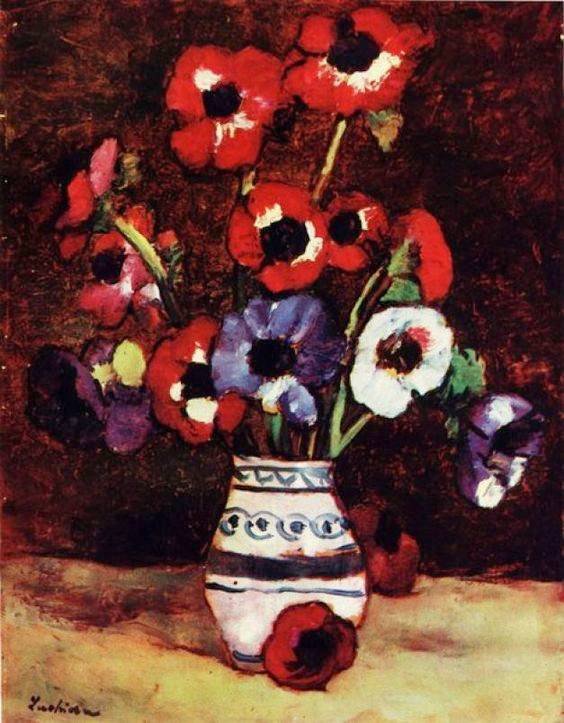
Congratulations, your post has been added to Pinmapple! 🎉🥳🍍
Did you know you have your own profile map?
And every post has their own map too!
Want to have your post on the map too?
Thank you!
@tipu curate
Upvoted 👌 (Mana: 33/43) Liquid rewards.
Thank you!
Right, buildings in Budapest and Prague are very historical and well preserved through years. I am neither by side capitalism nor communism, but I would never understand why one would take North Korea as an example for a city construction. It is gray and gloomy there.
You obviously didn't live in communism. In fact, there were many who regretted communism in my country. It depends on one's interests.
This city is also looking good, art work and also the weather is amazing. And the way you captured the natural beauty over here is incredible.
Thank you!
Lovely walkaround!
What I love about Prague is there are parts of the city where the eye sees only old buildings. So I get a kind of time-travel, from architectural perspective. Sofia doesn't have such places, everywhere its old buildings are mixed with brand new ones. Does Bucharest have such places with only "pre-communism architecture", let's put it that way?
!PIZZA
$PIZZA slices delivered:
@lightcaptured(6/15) tipped @bluemoon (x1)
Honestly, I have never visited or lived in a building which is as beautiful as this. Bucharest seems to be a nice place. I guess I will add it to one of my dream places.
Walking around in this kind of weather has its own fun, the way many buildings of our own city share with us. The maps of the old emirates are also much more beautiful and are much more robustly constructed. Thanks for sharing all these cool places with us. I really like it.
Hiya, @ybanezkim26 here, just swinging by to let you know that this post made it into our Honorable Mentions in Daily Travel Digest #1833.
Your post has been manually curated by the @pinmapple team. If you like what we're doing, please drop by to check out all the rest of today's great posts and consider supporting other authors like yourself and us so we can keep the project going!
Become part of our travel community:
Thank you very much!